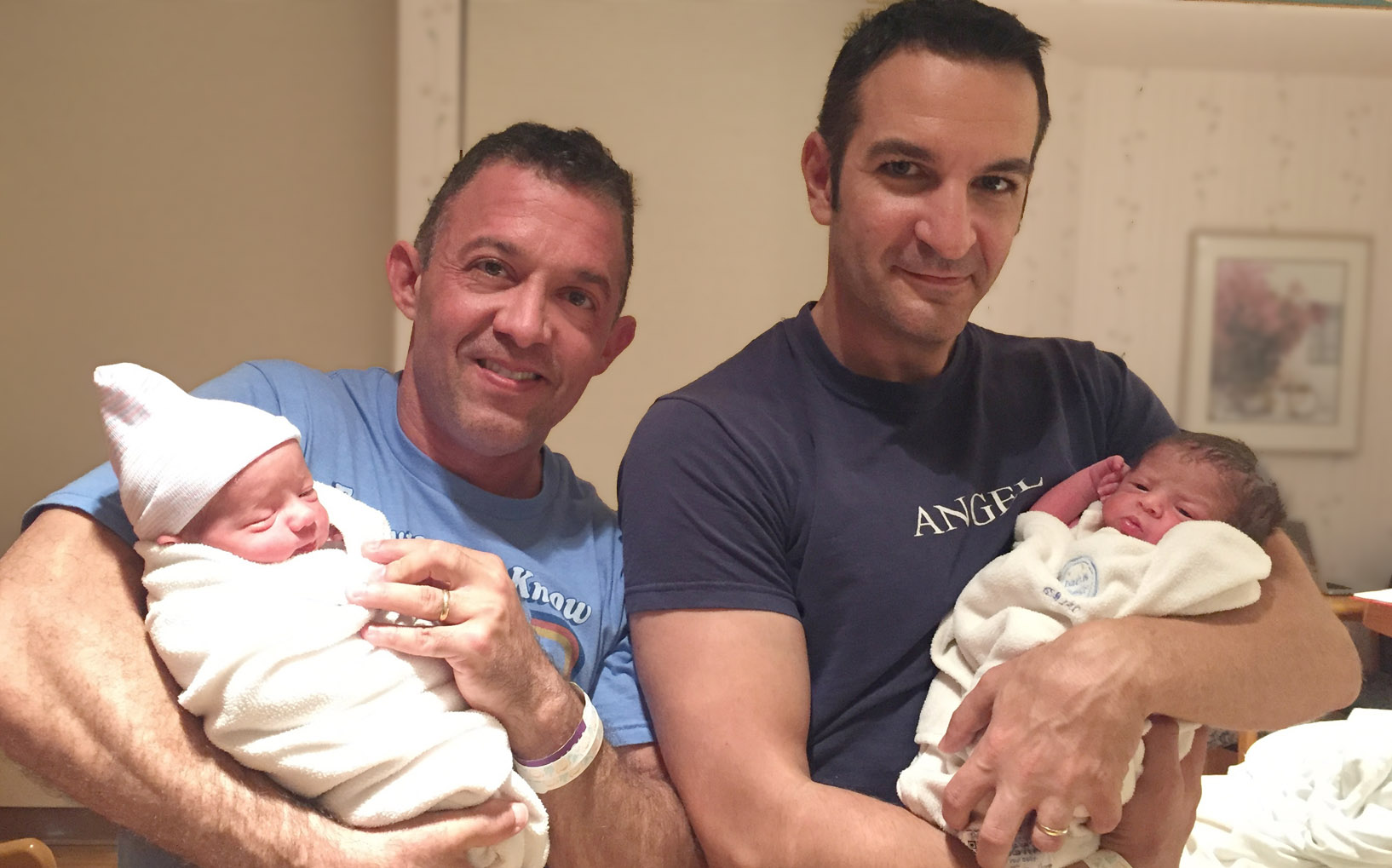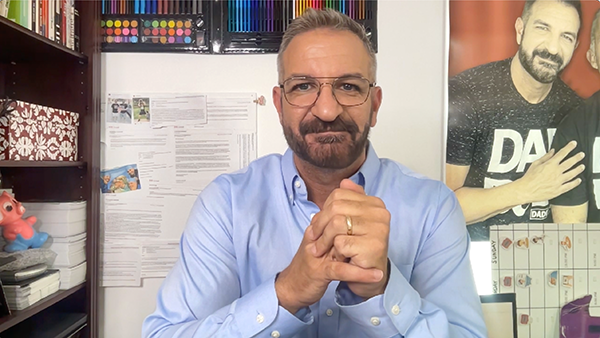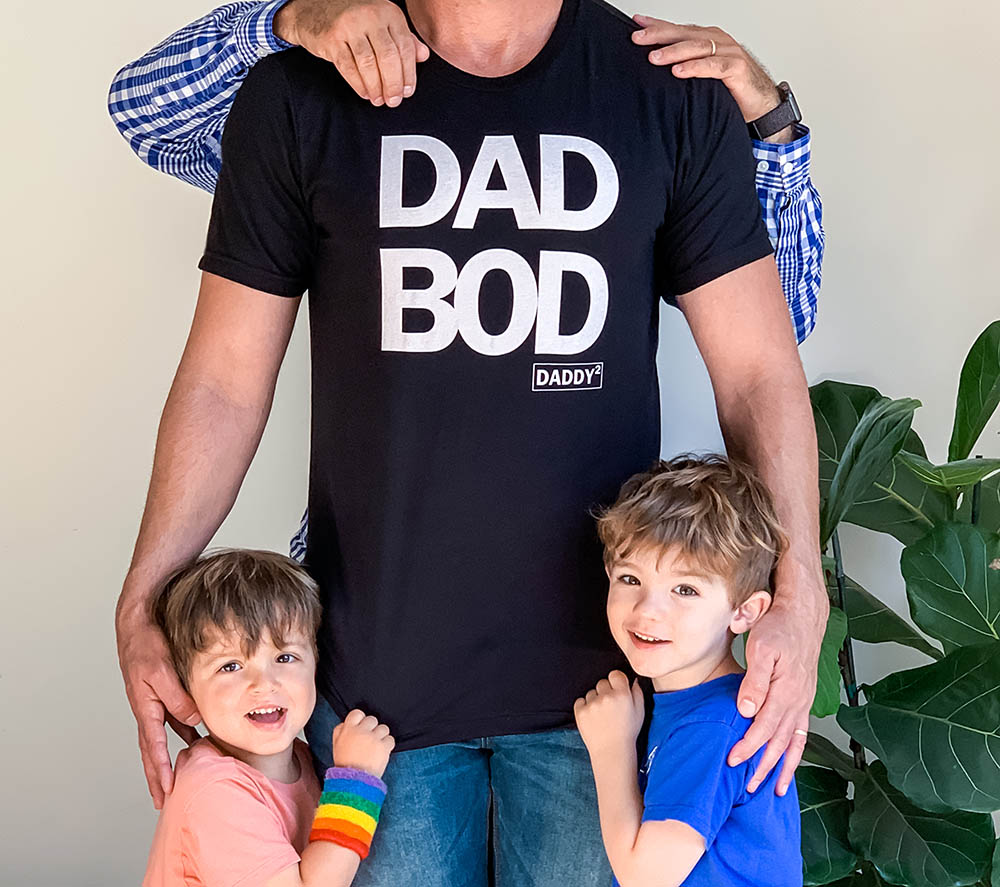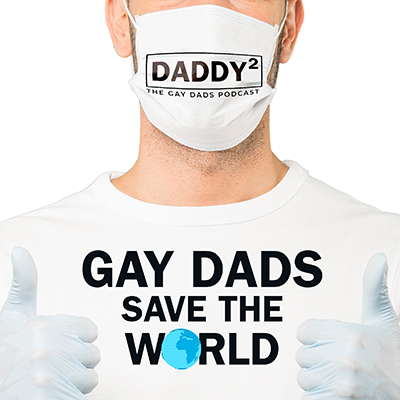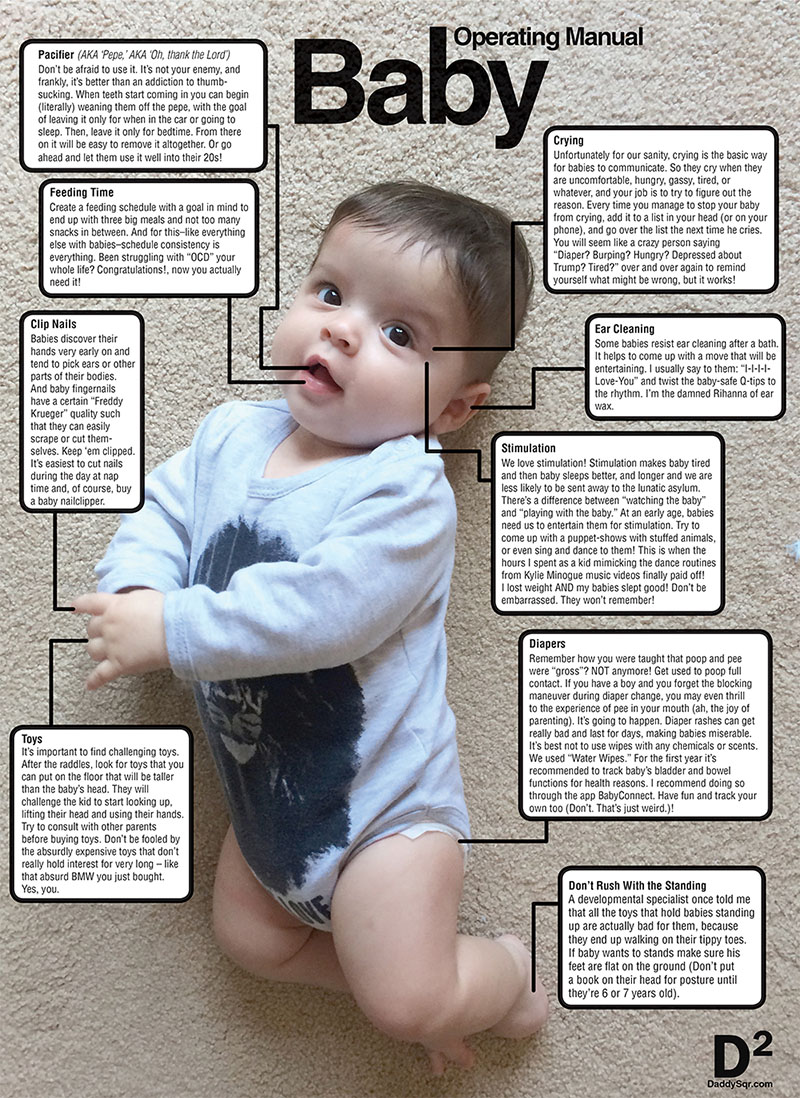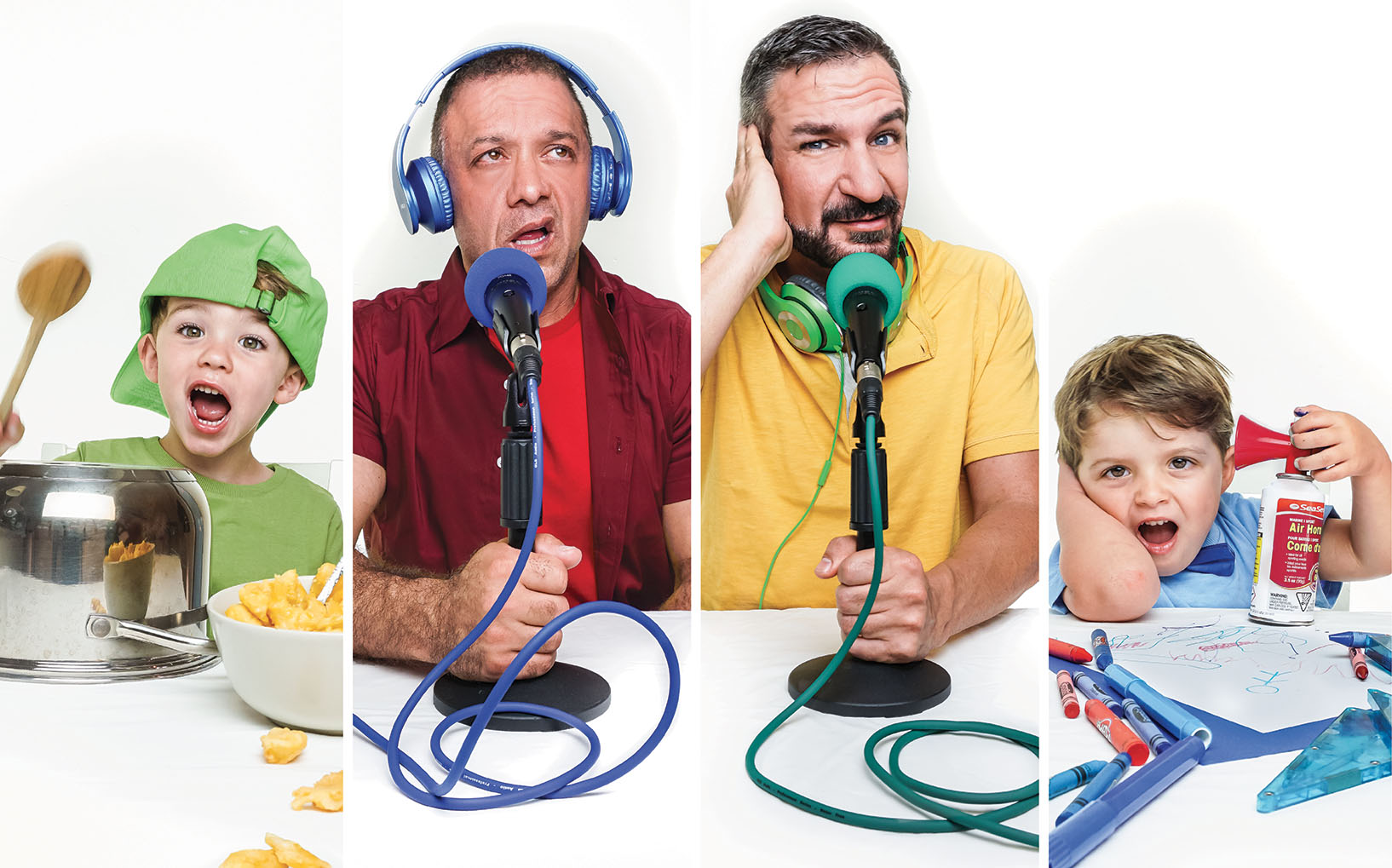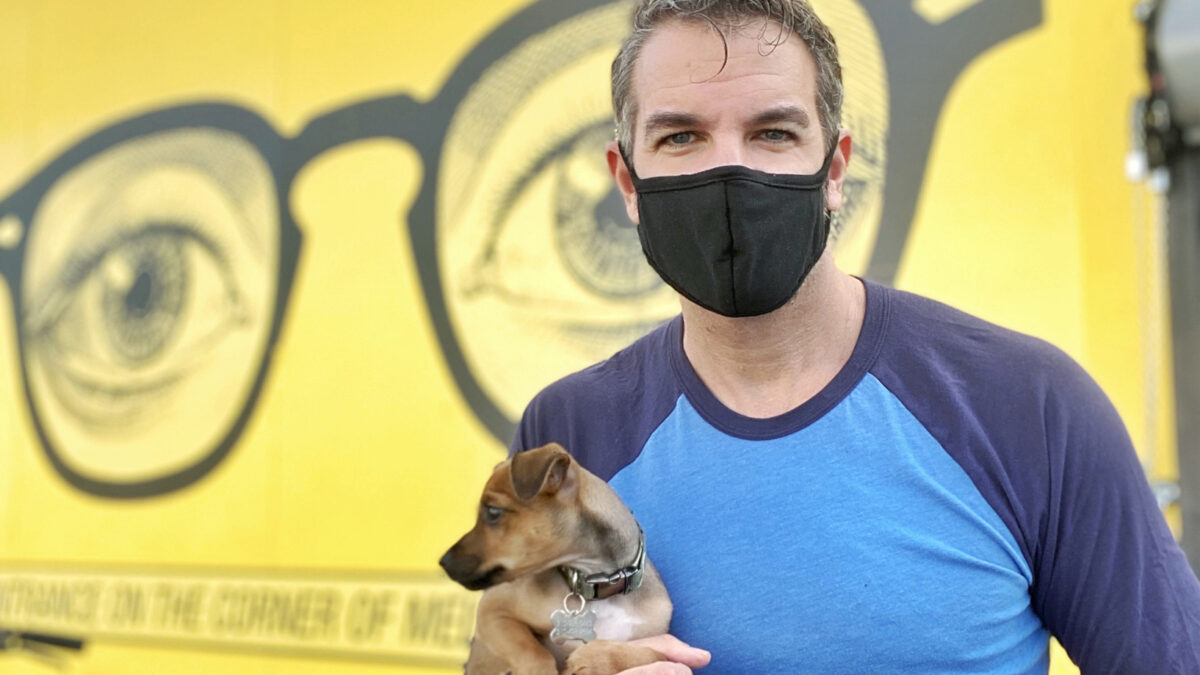Surrogacy for Gay Men: Grants and Overcoming Financial Obstacles
Surrogacy is an amazing option for gay men to become dads — but it’s highly expensive. Daddy Squared is checking in with the surrogacy grants available for gay men in the U.S.
Shortly after we had Ben and Adam on a long, highly expensive surrogacy journey, we were surprised to receive a $10K grant from Alex’s work. Alex had never imagined that such a grant existed and apparently, his caring and creative HR person who had heard about our situation, told him he should give it a try. I start this article off this way to remind you – the financial support you need for your surrogacy can come from some surprising places. It’s worth looking around.
On our podcast and overall, Alex and I have been very vocal about the costs of surrogacy for gay men and ways one can reduce it, but no matter how you look at it, this is expensive. In a recent New York Times article by David Dodge (listen to our interview with David on Known Sperm Donor) experts put the average price for a surrogacy journey around $150,000 – but from what we realized doing our podcast, every journey has its own price, and unfortunately, prices only go up. BUT with some patience and research (including reading this article) you can lower the financial toll significantly.
Before we get down to business, here’s a short review of how costs break down in a surrogacy journey for gay men:
- Gestational Carrier (i.e. surrogate) Fees
- Egg Donor
- Medical & Insurance Expenses for the surrogate, the egg donor, and the newborn(s)
- IVF Expenses
- Legal expenses
- (If you go with a surrogacy agency) Agency Fee
First step: Look at the first step
Our biggest tip, which probably sounds like a broken record right now, is to divide the whole surrogacy journey into two stages: The Embryo Stage (complete the embryo(s) and freeze them), and The Surrogacy, which is the pregnancy itself. We highly recommend stopping between the two, not only for financial recovery, but also because the whole process can sometimes become overwhelming – and then you have a baby which is even more overwhelming. So in this model the “big frightening surrogacy journey” looks, financially, like: 1) fund creation of the embryos and freeze them, pause for a few months (or years!), and then 2) go forth with the pregnancy itself. Ea ch of the steps, or at least the first step, is less intimidating.
Though some agencies and doctors might encourage you to do what they call, “a fresh cycle,” with the latest technology advancements, whether you freeze or don’t freeze the embryos has little or no effect on the quality on the embryos or their likelihood to make a baby, it’s just added stress and fees. “When embryos are preserved they are advanced stage genetically normal embryos,” says Dr. Mark Surrey, who runs one of the world’s most technologically advanced fertility labs in Los Angeles. “These are preserved by vitrification which has been an accurate methodology for many years without any compromise in quality.”
While there are quite a few surrogacy grant sources out there, our research has found that there are rarely grants to cover the entire journey. Grants are typically between $2,000 and $15,000, which is about a quarter to a half the cost of the first stage (see things that you can do in addition to grants later on in this article), most of the grant givers do expect that you’ll invest something from your own pocket (seams fair, right?!).

(Gay) Surrogacy Grants
In order to receive grants you already have to know what will be your financial challenge, meaning, what’s in your bank vs. how much money your IVF will cost.
Luckily, Dr. Surrey and his clinic can provide you all the information you need in order to fill out all the grant applications correctly, including the “diagnosis of infertility” that most of the organizations require.
“The process of the diagnosis begins with an evaluation and a conversation about the history,” Dr. Surrey says. “It includes an exam, semen analysis, infectious disease testing and now COVID testing as well. This process is of course the same for gay and straight men. The testing can be done in a day and the results usually take 2 days to come back.”
By the way, if your test results come back normal, Dr. Surrey says, you can use the sperm for the creation of the embryo, because trust us, nobody wants to do that a second time if they don’t need to!
Now here’s the good news: there are still organizations who award grants to gay intended parents. And it’s definitely worth a shot.
The Gay Parenting Assistance Program (GPAP) of Men Having Babies
This is the most well-known surrogacy grants giver created exclusively for gay men. Men Having Babies’ amazing work around the world has helped thousands of gay men learn about surrogacy. But it’s their grants that turn the dream into reality and their grants currently top any other organization in America. Naturally, due to the popularity of the organization and its grants among intended dads, it’s harder to actually receive the grant. However, we urge you to try.
Men Having Babies grants are not limited to U.S. citizens and include discounts and free services donated by more than seventy leading IVF, surrogacy, egg donation and legal service providers to prospective parents, discounted and donated complementary services including fertility medication, escrow services, and insurance resource services, and also cash grants to Stage II approved prospective parents. Find out more about the GPAP here
Other Grant Givers
Baby Quest
babyquestfoundation.org
Of the general grant giver organizations, we found Baby Quest, who famously received a generous donation from Kenya Moore (Real Housewives of Atlanta), the most LGBT-friendly. Not only do they state it on their website, but you can find same sex families in their recipients list (unfortunately they listed only one gay couple but hopefully this year it will change).
The grants are given twice a year (next deadline is September 9 so hurry!), and according to Baby Quest’s website they do their best to fill the gap between the applicants’ funds and the fees of the fertility clinic. Grants are given to all U.S. citizens who work with U.S. fertility clinics. Application fee is $50. Applicants must provide proof of medical insurance.
Journey to Parenthood
journeytoparenthood.org/application-html
Start your engines, because this LGBT-friendly organization will be accepting grant applications July 15th, 2020 through August 31st, 2020. Here, too, you have to be a U.S. citizen and gay men who are seeking a grant automatically qualify to apply. Grant is usually $10,000, application fee is $50.
“Once we receive the application, our Board looks at many factors,” co-founder Colleen Brierley explains, “[however] we would likely give the grant to a couple who is currently receiving treatment and in need of financial assistance on pending bills.”
In some cases, Journey to Parenthood are actively helping gay men raise money through creating and promoting of a GoFundMe Campaign, like this one that’s promoted now: Jordan and Levi are currently in the process of egg donation, legal fees, and surrogacy fees.
The Cade Foundation
This foundation took upon themselves to help people who are struggling with infertility, by the definition of the CDC. This means, that if one or two of the dads is infertile, you can apply for their grant (you can have yourself checked at Dr. Surrey’s office). Regardless, they foundation gives a $10,000 grant to help funding an IVF cycle at raceforthefamily.com, and everyone can apply (last event was in June, future event is in October 2020)
The Family Formation Charitable Trust
adoptionart.org/charitable-trust/apply-for-a-grant
This grant is open to all U.S. citizens. Maximum grant amount is $2,000. There’s $25 application fee. This organization also gives grants for adoption.
Every organization in the above list has corresponded with me personally and confirmed support the gay community, as I went through the list of fertility grant givers. If you discover other organizations, I highly recommend contacting them prior to going through the application process, as there’s not a lot of anecdotal evidence of grants being given to gay men even in those organizations who pride themselves on being “LGBT inclusive” or “LGBT Friendly.”
Also, look carefully for the requirements of grant givers that are not listed here: some organizations give grants only to people in specific areas (see the list of areas below), or only if you’re Jewish, or only if your previous IVF attempt failed, or if you were diagnosed with Cancer.
Saving Money
When you think about saving money, it’s also important to keep in mind that our goal is to make it through to a successful pregnancy on the first round. That’s easier on your wallet—and on your heart. You wouldn’t want to spend all this money and then have to do it all over again – and that’s where success rates and technology come to play. Clinics run by some of the more sophisticated fertility doctors, Like Dr. Surrey (“Super Doctor 2020”), whose success rates come from combining his years of experience and state-of-the-art technology, are likely to deliver a more successful and smooth journey – and that can make a huge difference.
Three Things That You Can Do NOW in order to ease the financial burden, beyond surrogacy grants:
- Dr. Surrey works with Capex MD, fertility financing specialist, that provides loans in the amount you need that you can return in flexible terms (that’s what Alex and I did).
- Crowdfunding Your Journey
Like Jordan and Levi’s example above, crowdfunding can be a beautiful way to raise money for your journey through help from friends and family. Don’t ask for birthday presents this year–ask for donation instead! GoFundMe is the most popular crowdsourcing option for personal fundraisers because it doesn’t charge a “platform fee.” They only charge 2.9% plus 30 cents per donation for processing fees. - Get Creative! The internet is filled with opportunities to raise money for your journey. Be vocal about it, talk about it, set your intention towards your #familygoals. It can help a lot!
We know that numbers 2 and 3 above can be uncomfortable. But remember that so many people are out there pulling for you and excited by what you’re trying to do – and also remember: If you think that asking others for money is uncomfortable, wait ‘til you experience the discomfort of diapers!

Action Items:
1. Download Surrogacy Grants Application Forms from the above links.
2. Schedule a consultation with Dr. Surrey to discuss your journey, costs, and any data you need to fill your forms.*
3. Submit the grant forms and practice positive thoughts! Recommended: Listen to Kylie Minogue’s Flower once a day and think about your baby!
*Fill in your email and name below if you wish us to connect you with Dr. Surrey’s team and clinic:
[contact-form-7 id=”2703″ title=”Contact form 1″]
Appendix
These organizations are listed as LGBT friendly but have yet to respond my inquiry:
AGC Scholarship Foundation
On their recipients list there’s no evidence of gay dads (though there are lesbian moms)
Also their social media channels shows no activity since 2019.
Footsteps for Fertility Foundation
Grants are given during their events, but all of the events are postponed due to COVID-19
Their website isn’t clear on whether or not infertility of one of the dads is required.
These organizations are local or religion-based surrogacy grants:
California
Jewish Free Loan Asossiation (LA and Ventura Counties, interest-free loans)
Connecticut
Nest Egg Foundation
Illinois
Kevin J. Lederer Life Foundation
Indiana
Kevin J. Lederer Life Foundation
New York
Nest Egg Foundation
North Carolina
The Kyle and Samantha Busch Bundle of Joy Fund
Wisconsin
Kevin J. Lederer Life Foundation
Jewish Organizations
Hasida
JFCS Fertility Fund: A Gift From the Heart (Philadelphia area)

